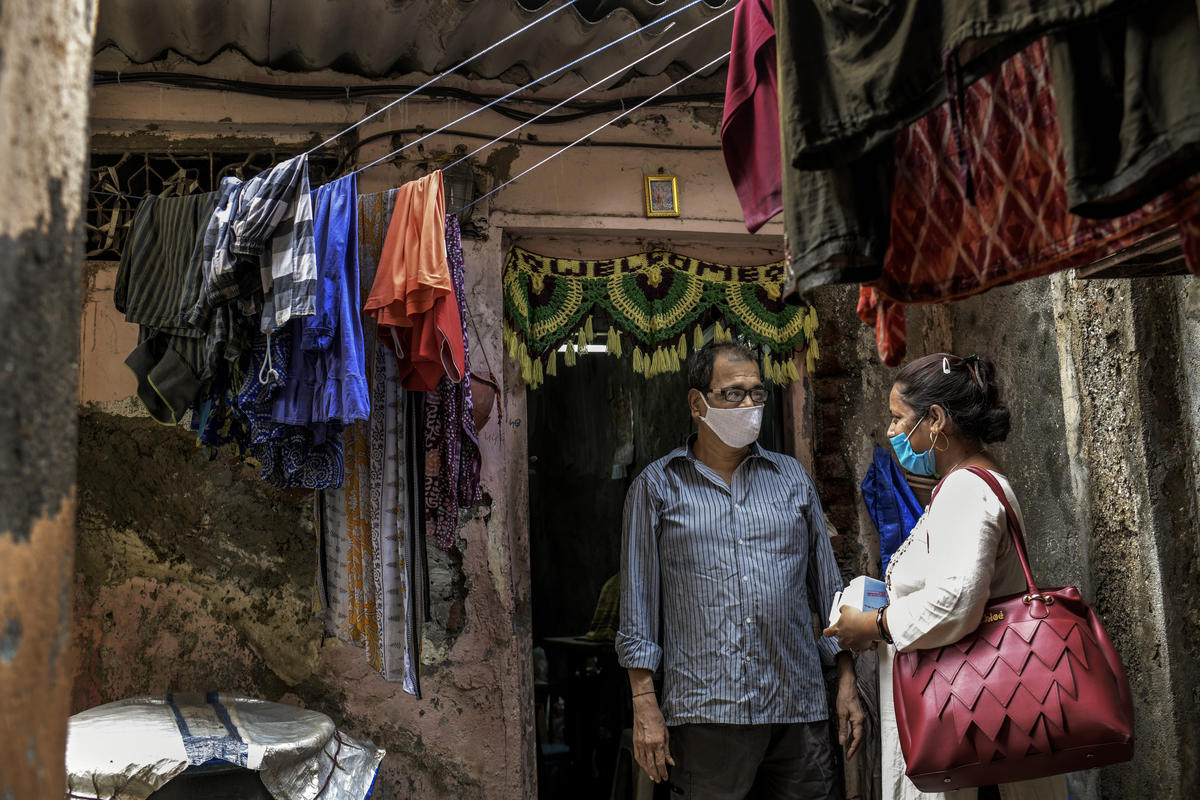World Health Day 2022: Fostering a movement to create societies focused on well-being

In 2020, the world witnessed an unprecedented global health emergency – the COVID-19 pandemic. Engulfing major continents, the pandemic induced nationwide lockdowns, and mobility restrictions and brought normal life to a halt. Due to various waves and variants of COVID-19, India too went under a series of lockdowns. A deadly surge in COVID-19 cases during various waves placed an enormous strain on health and critical care facilities, leaving vulnerable families paying a particularly steep price. The ensuing challenges to public health, food systems and the world of work intensified systemic inequities.
India’s health system was stretched due to the overwhelming demands of COVID-19. Diversion of resources and staff for test and treatment services of COVID-19 and limited medical supplies strained response to HIV and other diseases. Despite these challenges, Alliance India continued its efforts to protect People Living with HIV (PLHIV) and key population groups by supplementing and complementing the national HIV response efforts in partnership with the government and other stakeholders. During pandemic induced lockdowns and travel restrictions, Alliance India continued to fast track newer methods and technologies for improving the quality of services and amplified community-level actions to reach out to the most vulnerable and key populations. These efforts focused on providing care and treatment services; drug use and harm reduction and promotion of sexual and reproductive health rights. Quickly adapting to the rapidly evolving pandemic, Alliance India realigned last-mile service delivery, embraced innovations and dealt with various challenges resolutely to safeguard the rights of PLHIV.
Key population (KPs) communities have been disproportionately affected and vulnerable to infections such as COVID-19. Health care costs associated with COVID-related care also deterred KP group members from seeking care and taking measures to protect their health and that of their communities. Maintaining access to food, shelter, and other essential goods became more difficult for KP group members because many do not have access to social safety nets and public distribution systems which is generally present for the general public. COVID-19 also led to an increase in violence within relationships; this situation was also exacerbated by forced physical distancing and shelter-in-place measures and by economic distress caused by wide scale job losses which harmed the most vulnerable first. Individuals were forced to live with abusive families or to hide their sexual orientation and/or gender identities in order to have access to shelter, all while dealing with increased social isolation leading to increased anxiety, depression and other mental health issues. Physical distancing measures taken by the government to prevent the spread of coronavirus affected the livelihood and safety of female and transgender sex workers; leading to fewer clients, increasing the risk of homelessness and the need to accept riskier clients. Under the Ujwala and Wajood projects of Alliance India, steps were initiated to mitigate and prevent Gender-Based Violence against female and transgender sex workers and strategically provided Sexual and Reproductive Health Services to improve the uptake of HIV services including prevention, testing, treatment, and care and support.
This year as we observe World Health Day, if we want to ensure the overall well-being of the key population groups then equitable access needs to be safeguarded and then only these communities can be said to be part of the sustainable development agenda.
For the same, Alliance India will continue to closely work with communities and government stakeholders and policymakers for making the health system more agile and responsive to the demands of People Living with HIV and key population groups.
~ Written by Anurag Paul, Communications Officer, Alliance India
Other Recent Articles
- Yoga for Wellness: Supporting People Living with HIV & NCDs 25 June, 2025
- The Unsung Heroes of HIV Care: Outreach Workers under the Vihaan Programme 8 May, 2025
- Men’s Mental Health Matters in HIV Care 1 April, 2025
- Transforming Lives through Health Interventions: My Visit to Narmadapuram Prison 11 July, 2024
- HIV and Ageing: Understanding the Unique Needs of Older Adults 20 May, 2024
- Youth Voices: Life with HIV in Contemporary India 26 September, 2023
- Empowering Transgender Community to create an Equal World 20 July, 2023
- Combating Stigma and Discrimination Among People Living with HIV 7 July, 2023
- Understanding the Significance of HIV Testing: Impact on Individuals, Relationships, and Society 22 June, 2023
- Empowering Lives during Unrest l Our Commitment to Manipur 5 June, 2023
- Made by Nicdark - Copyright 2020
- donations@ong.com
- volunteers@ong.com
- contact@ong.com
India HIV/AIDS Alliance (Alliance India)
A not-for-profit Section 8 Company with Registration No: U85310DL1999NPL098570
Contact
-
6, Community Centre
Zamrudpur Kailash Colony Extension
New Delhi – 110048 - +91-11-4536-7700
Download
©2021 All Rights Reserved by Alliance India



